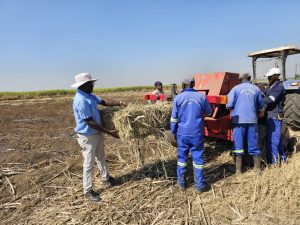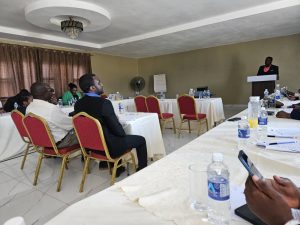…says environmental cost too high
EnviroPress Reporter
Some residents of Mwenezi feel that the environmental cost of using disposable nappies is too high and government should consider banning them altogether until people become responsible enough to dispose of them properly, EnviroPress can report.
Speaking at a resource governance and climate change policy discussion organized by EnviroPress with the support from Southern Africa Trust in Rutenga recently, participants called upon local legislators to move motions in parliament for the total banning of disposable diapers.
“We have used diapers dumped everywhere here at Rutenga. It becomes very bad when people burn them up and you are busy cooking outside or you are in your house and the windows are open. I feel that diapers are not promoting the hygiene that they should be promoting; rather the reverse is happening,” said Rejoice Gumbo, a mother and resident of Rutenga.
Another participant said she understood that legislating against diapers would come at a high economic cost but it would be a boon for the environment.
“Many of the used diapers end up in rivers and dams. It is just not wise to continue like this. Mwenezi Rural District Council does not have the capacity to consistently remove and properly dispose of ordinary refuse, let alone to properly manage such non-degradable substances as diapers. You add that to the people’s own irresponsibility, and you have a recipe for environmental disaster,” she said.
In response, Mwenezi East MP Master Makope said he appreciated people’s concerns, adding that the issue needed wider consultations before it can be taken to parliament.
“It is something I really take seriously, but in a community as ours, many other people would feel there are more pressing issues to prioritize. For example, how to make our farmers more adaptive to climate change in a dry district as ours. If people however feel that we must take it up, then I would not have a problem moving a motion,” said Makope.
In his contribution at the same event, Headman Chitanga drew parallels between the reckless disposals of used diapers to the general decline of morals in communities.
“People should be forced to respect public spaces. We have people who simply try to keep their own backyard clean, but do not care about the next homestead. We have rivers to protect because they store water for us and our animals and I think banning them would help do the job,” said the traditional leader.
This project was made possible through a partnership with the Southern Africa Trust. The views expressed herein do not necessarily represent that of the Trust or its associates. www.southernafricatrust.org






